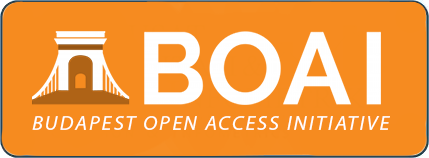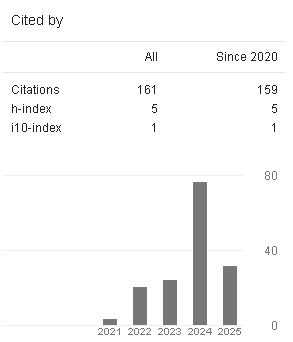Shariah-Driven Healthcare: Bridging Knowledge, Cost, and Compliance
Keywords:
Shariah-compliant Hospitals, Operational Cost, Training, Healthcare PractitionersAbstract
This study aims to investigate the reasons behind healthcare practitioners’ limited knowledge of Shariah principles and analyse how high operational costs impact the proper functioning of Shariah-approved hospitals. Using qualitative methods, the study used semi-structured interviews and field observations with five purposively selected health care professionals, hospital management and clinical staff who were directly engaged in Shariah-compliant practices. The results unveil essential discrepancies resulting from the dearth of specialised training and the unavailability of systematic, actionable guidelines articulating the implementation of Shariah norms in clinical spaces. Moreover, sourcing halal-certified medical supplies has a financial burden, impacting operational efficiency. To address this issue, the study proposed an integrated approach with three interconnected pillars: designing and instituting systematic Shariah-mindset training programmes; the use of Shariah-compliant financial mechanisms such as zakat and waqf for strategic financial utilisation; and establishing standardised operational guidelines specifically to develop Shariah compliance in the healthcare management approach.
Downloads
References
Adli, J. H., Wan, W. M. K. F., Khairuldin, N. N., & Mokhtar, W. K. A. W. (2024). Maqasid Al-Shariah in the Gazetting of Fatwas in Selangor: An Analysis.
Al-Daihani, M., & Abdullah, A. S. C. (2023). Waqf-Based Healthcare Services Model (WHS-M): A Proposed Model an Alternative Financing Mode for the Health Sector. I-iECONS e-proceedings, 778-789.
Alfarizi, M., & Arifian, R. (2023). Patient satisfaction with Indonesian sharia hospital services: Halal healthcare tool and implications for loyalty-WoM. Asian Journal of Islamic Management (AJIM). https://doi.org/10.20885/ajim.vol5.iss1.art2
Allen, D. C. (2015). Research, when you know what you’re doing: A review of essentials of qualitative inquiry. Qualitative Report, 20(4), 451-453.
Amrullah, F., & Aini, Q. (2024). Analyzing Sharia Service Standards in Certified Hospitals for Optimal Healthcare Quality. Journal of Angiotherapy, 8(5), 1-8.
Arifin, I. Z. (2012). Bimbingan dan konseling islam untuk pasien rawat inap di rumah sakit. Ilmu Dakwah: Academic Journal for Homiletic Studies, 6(1), 170-194.
Arifin, S., Nazir, N., Samsudin, S., & Daud, N. (2022). Understanding Doctors’ and Nurses’ Roles in the Islamic Medical Practice and Rukhsah Solah in a Shariah-Compliant Hospital. 3RD WCII. https://doi.org/10.47836/mjmhs.18.s19.15
Aulia, N. (2024). Integrating Islamic Values and Modern Medical Practices to Enhance Public Health in Muslim Communities. https://doi.org/10.62446/averroes.010205
Badampudi, D., Fotrousi, F., Cartaxo, B., & Usman, M. (2022). Reporting consent, anonymity and confidentiality procedures adopted in empirical studies using human participants. E-Informatica Software Engineering Journal, 16(1).
Baharuddin ASB, A. S., Wan Ismail WAFWI, W. A. F., Abdul Mutalib LAM, L., Ahmad MHA, M. H., Razak RR, R., Saharudin NSS, N. S., & Abdull Rahim MAAR, M. A. (2019). An Appraisal of Maqāsid Al-Shariʿah Classic and Recent Literature: Systematic Analysis.
Barbour, R. S. (2022). Theoretical sampling. SAGE Publications Ltd.
Baqutayan, S. M. S., & Mahdzir, A. M. (2018). The importance of waqf in supporting healthcare services. Journal of Science, Technology and Innovation Policy, 4(1), 13-19.
Bell-Nolan, M. E. (2015). Writing is worth the challenges: A qualitative study of teachers' beliefs, experiences, and common core tensions with writing instruction across the curriculum in an urban high school. Kent State University.
Belotto, M. (2018). Data Analysis Methods for Qualitative Research: Managing the Challenges of Coding, Interrater Reliability, and Thematic Analysis. The Qualitative Report. https://doi.org/10.46743/2160-3715/2018.3492
bin Don, A. G., Puteh, A., & Mokhtar, A. I. (2022). Da’wah Maqasid Al-Syariah in Nurturing Community Well-Being: Dakwah Maqasid Al-Shari’ah dalam Memupuk Kesejahteraan Masyarakat. Jurnal Pengajian Islam, 15(1), 249-258.
Boyce, C., & Neale, P. (2006). Conducting in-depth interviews: A guide for designing and conducting in-depth interviews for evaluation input (Vol. 2). Watertown, MA: Pathfinder international.
Campbell, R., Goodman-Williams, R., Feeney, H., & Fehler-Cabral, G. (2018). Assessing Triangulation Across Methodologies, Methods, and Stakeholder Groups: The Joys, Woes, and Politics of Interpreting Convergent and Divergent Data. American Journal of Evaluation, 41, 125 - 144. https://doi.org/10.1177/1098214018804195
Campbell, S., Greenwood, M., Prior, S., Shearer, T., Walkem, K., Young, S., ... & Walker, K. (2020). Purposive sampling: complex or simple? Research case examples. Journal of research in Nursing, 25(8), 652-661.
Chamberlain, B. (2009). Phenomenology: A qualitative method. Clinical Nurse Specialist, 23(2), 52-53.
Crouch, M., & McKenzie, H. (2006). The logic of small samples in interview-based qualitative research. Social science information, 45(4), 483-499.
Daud, N. M., Man, N. C., & Aris, N. M. (2024). Empowering Healthcare through Waqf: Initiatives by the State Islamic Religious Council. International Journal of Research and Innovation in Social Science, 8(9), 3657-3664.
Denny, E., & Weckesser, A. (2022). How to do qualitative research?. Bjog, 129, 1166 - 1167. https://doi.org/10.1111/1471-0528.17150
Eldh, A. C., Rycroft‐Malone, J., van der Zijpp, T., McMullan, C., & Hawkes, C. (2020). Using nonparticipant observation as a method to understand implementation context in evidence‐based practice. Worldviews on Evidence‐Based Nursing, 17(3), 185-192.
Fauzi, S. (2020). State Actor Dynamics in Brunei’s Healthcare Policies. , 5. https://doi.org/10.53105/JIG.5-3.
Gallagher, E., & Searle, M. (1983). Women’s health care: a study of Islamic society. Third World Medicine and Social Change, Lunham Md: University Press of America, 85-96.
Harun, S., Ahmad, I., Shafie, S., Choirisa, S., & Rizkalla, N. (2024). Developing Muslim-friendly hospital practices: understanding the key drivers. Journal of Islamic Marketing. https://doi.org/10.1108/jima-03-2023-0094
Harun, S. (2024). Healthcare Delivery and the Environment: Understanding Muslim Patients and Their Caregivers’ Needs. The European Proceedings of Social and Behavioural Sciences. https://doi.org/10.15405/epsbs.2024.05.49
Hidayah, N., Dewi, A., Ahmad, G., & Sulaeman, S. (2024). Integration of Islamic Values Into Balanced Scorecard As A Strategic Management System at A Sharia Hospital. Jurnal Aplikasi Bisnis dan Manajemen (JABM), 10(2), 351-351.
Hutchinson, A. M. (2005). Analysing audio-recorded data: using computer software applications. Nurse Researcher, 12(3).
Indriani, N., Komarudin, P., Hani, U., & Yanova, M. (2024). Sharia Compliance with DSN-MUI Fatwa No.107/DSN-MUI/X/2016 Concerning Guidelines for Organizing Hospitals Based on Sharia Principles (Case Study at RSUD Brigjend H Hasan Basry Kandangan and Sultan Agung Islamic Hospital Banjarbaru). NUKHBATUL 'ULUM: Jurnal Bidang Kajian Islam. https://doi.org/10.36701/nukhbah.v10i1.1104
Isangula, K. G., Kelly, S., & Wamoyi, J. (2024). Manual qualitative data coding using MS Word for students and early Career Researchers in Resource-constrained settings. International Journal of Qualitative Methods, 23, 16094069241299223.
Ismail, M. S., Siwok, S. R., & KZ, A. R. (2020). The relationship between assertive behaviour and islamic work ethics among support staff in Malaysia. Jurnal Kemanusiaan.
Ismail, S., Hamid, B., Sulistiadi, W., & , S. (2018). Journey to Shariah Hospital:An Indonesian Experience. , 2, 55-64. https://doi.org/10.31344/IJHHS.V2I2.27.
Ismail, S. K., Daud, N., Syed Husin, S. N. M., Salleh, S. F., & Shafie, Z. M. (2024). The Framework of Maternity Care Practices Guideline toward the Enhancement of Sharia-Compliant Hospital. International Journal of Academic Research in Business & Social Sciences, 14(12). https://doi.org/10.6007/ijarbss/v14-i12/23907
Jalali, R. (2013). qqualitative research sampling. Journal of qualitative research in health sciences, 2(4), 310-320.
Jamaludin, F. I., Abdullah, M. R. T., Endut, M. N. A. A., Saifuddeen, S. M., Hamimi, K. A., & Harun, S. (2025). Developing a Shariah-compliant medical services framework in Malaysia: an expert system approach using fuzzy Delphi method and interpretive structural modelling. BMJ Open, 15(1), e082263. https://doi.org/10.1136/bmjopen-2023-082263
Jamaludin, F., Abdullah, M., & Endut, M. (2023). Establishing a Sustainable Shariah-Compliant Hospital in Malaysia: Exploring the Pertinent Concept. KnE Social Sciences. https://doi.org/10.18502/kss.v8i20.14631
Jespersen, L., & Wallace, C. A. (2017). Triangulation and the importance of establishing valid methods for food safety culture evaluation. Food Research International, 100, 244-253.
Lester, J. N. (2015). Leveraging two computer-assisted qualitative data analysis software packages to support discourse analysis. In Enhancing qualitative and mixed methods research with technology (pp. 194-209). IGI Global.
Lochmiller, C. (2021). Conducting Thematic Analysis with Qualitative Data. The Qualitative Report. https://doi.org/10.46743/2160-3715/2021.5008
Mantula, F., Mpofu, A. C., Mpofu, F. Y., & Shava, G. N. (2024). Qualitative Research Approach in Higher Education: Application, Challenges and Opportunities. East African Journal of Education and Social Sciences, 5(1), 1-10.
Mardiyati, F., & Ayuningtyas, D. (2021). Analysis of Implementation Standards of Sharia Minimum Services in the Hospital: Case Study at Sari Asih Sangiang Hospital 2018. Journal of Indonesian Health Policy and Administration. https://doi.org/10.7454/ihpa.v6i1.3145
Nadratuzzaman, M., Taufiki, M., & Yumna, L. (2021). Management Evaluation and Sharia Certified Hospitals Compliance. Alqalam, 38(1), 373692.
Padela, A. I., Gunter, K., Killawi, A., & Heisler, M. (2012). Religious values and healthcare accommodations: voices from the American Muslim community. Journal of general internal medicine, 27, 708-715.
Palinkas, L. (2014). Qualitative and Mixed Methods in Mental Health Services and Implementation Research. Journal of Clinical Child & Adolescent Psychology, 43, 851 - 861. https://doi.org/10.1080/15374416.2014.910791
Percy, W., Kostere, K., & Kostere, S. (2015). Generic Qualitative Research in Psychology. The Qualitative Report, 20, 76-85. https://doi.org/10.46743/2160-3715/2015.2097
Peters, K., & Halcomb, E. (2015). Interviews in qualitative research. Nurse Researcher (2014+), 22(4), 6.
Razak, T. A., & Abdulahi, H. A. (2016). Incorporating Moral Values and Maqasid Al-Syari'ah into Medical and Healthcare Practices. IIUM Medical Journal Malaysia, 15(2).
Riyadi, A., & Wigati, Y. I. (2019). Model Structure of Islamic Guidance and Counseling in the Healing Process of Inpatients. Konseli: Jurnal Bimbingan dan Konseling (E-Journal), 6(2), 109-116.
Sharrer, M., Iqbal Hasan, A., Bin Auda, M., & Sgro, S. (2024). An examination of ethical standpoints: Organ transplants within the framework of islamic law. 1(1), 71–88. https://doi.org/10.35335/a97nby94
Shariff, S. M., Mohtar, S., & Jamaludin, R. (2018). A practical journey in implementing a syariah compliant hospital: an nur specialist hospital’s experience. IIUM Medical Journal Malaysia, 17(2)
Shariff, S. M., & Rahman, A. R. A. (2016). Shari ah compliant hospital; from concept to reality: a Malaysian experience. Bangladesh Journal of Medical Science, 15(1), 1-4.
Stuckey, H. L. (2014). The first step in data analysis: Transcribing and managing qualitative research data. Journal of Social Health and Diabetes, 2(01), 006-008.
Sulistiadi, W., Rahayu, S., Veruswati, M., & Asyary, A. (2020). Narrative study of shariah hospitals in indonesia: a review of islamic brand communities innovation for health care. Preprints.
Tandon, T. (2021). Qualitative Research: An Overview., 9. https://doi.org/10.25215/0903.065
Umar, A., & Mat, H. (2024). Penerapan Maqasid al-Syariah dalam Pembangunan Model Kepemimpinan Wanita di Malaysia: The Application of Maqasid al-Shariah in the Development of Women's Leadership Model in Malaysia. RABBANICA-Journal of Revealed Knowledge, 5(2), 151-165.
Weston, L. E., Krein, S. L., & Harrod, M. (2022). Using observation to better understand the healthcare context. Qualitative research in medicine & healthcare, 5(3), 9821.
Wilda, A., Putri, S. M., Afrilianti Vinalisa, B. A., Salsabila, R. D., Nafisatussalimah, P. S., Santoso, A., & Sulistyaningrum, I. H. (2024). Knowledge, religiosity, and decision to use Sharia hospital services among residents in Central Java, Indonesia. Sains Medika: Jurnal Kedokteran Dan Kesehatan, 15(1), 1. https://doi.org/10.30659/sainsmed.v15i1.33510
Williams, M., & Moser, T. (2019). The art of coding and thematic exploration in qualitative research. International management review, 15(1), 45-55.
Wulandari, T., Fadila, F., & Rizal, S. (2023). Analisis Layanan Bimbingan Konseling Di Rumah Sakit. MUHAFADZAH, 4(1), 1-10.
Downloads
Published
How to Cite
Issue
Section
License
Copyright (c) 2025 RABBANICA - Journal of Revealed Knowledge

This work is licensed under a Creative Commons Attribution-NonCommercial 4.0 International License.












